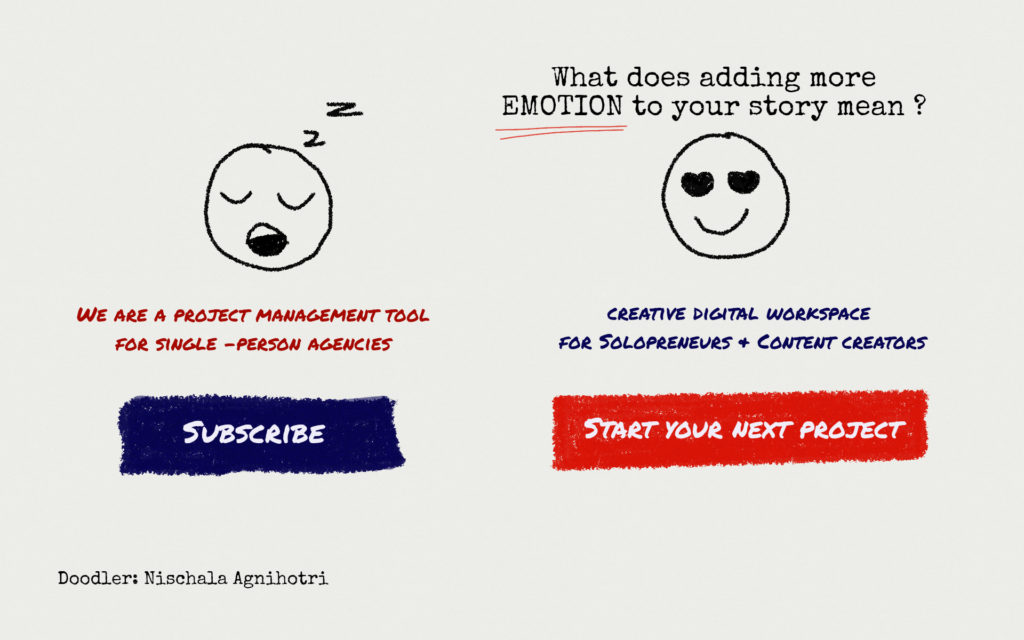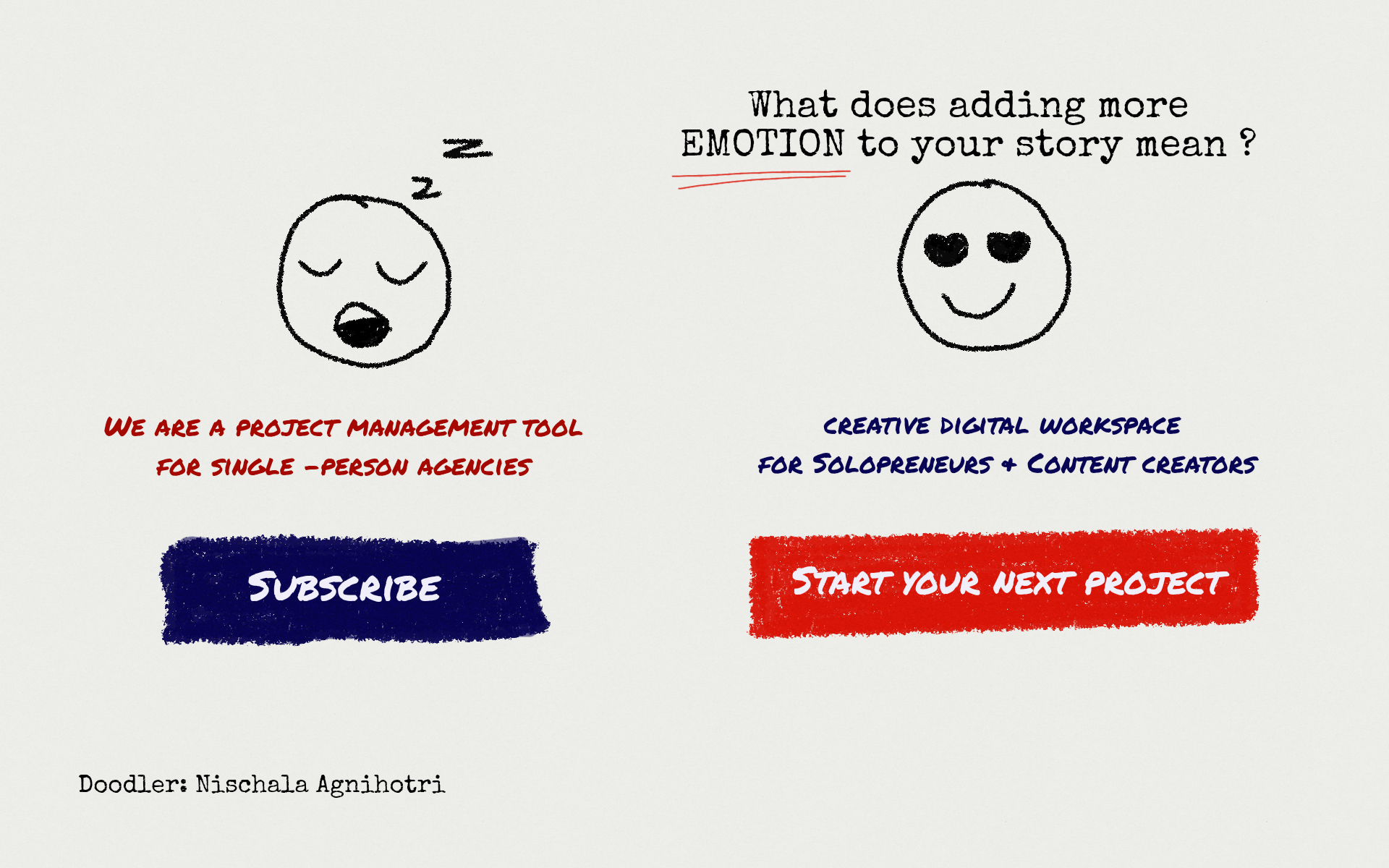Avoid technical jargons and replace them with emotional articulation while crafting a story.
Look for research skills and common sense while hiring content writers.
Pick one social media channel and master it before jumping onto too many social media channels.
Storytelling is an indispensable skill for product marketers. But, the nuances of storytelling and the winning schema is ignored while drafting collateral. Some key takeaways from this conversation have been that:
- Avoid technical jargons and replace them with emotional articulation while crafting a story.
- Look for research skills and common sense while hiring content writers.
- Pick one social media channel and master it before jumping onto too many social media channels.
Being lost in the charm of storytelling
Nischala: Where do product marketers ignore or neglect the charm of storytelling in their overall strategy?
Roma Amarnani: It is very easy to get too caught up with the technical / beneficial aspects of the features of the product which is when product marketers tend to neglect the charm of storytelling. So, mostly, in the consideration / conversion stages of the marketing funnel, they tend to go more technical while explaining their products failing to communicate the reason the product exists.

While it is important to communicate the benefits of the features and the product as a whole, it is also crucial to build that emotional connect with the audience through the means of storytelling.
Roma shared a litmus test to identify better story telling, “I usually take this into consideration while editing all the marketing collaterals — I ask myself if this is a particular piece of information adds value to our customers’ time in this particular stage or is it something that can be communicated while onboarding them.”
Building Content Teams, from scratch
Nischala: What skills should product marketers focus on while building their content teams? What are the blind spots or factors taken for granted while building content teams?
Roma Amarnani: I think two of the most important things to focus on while building a content team as a product marketer is research and common sense. While common sense can’t be categorized as a skill, but it is something that your writers (a.k.a thinkers) need to have.
You can’t sit down and explain them everything from the beginning — they need to have a basic understanding of ‘how things work.’ The ability to connect the dots is highly underrated in the product ecosystem. Additionally, if you are to take a product-centric approach with your content, it is important that your writers know how to search and more importantly, where to search.
Blind spots while creating content teams
Regarding the blind spots / factors taken for granted, I think hiring niche writers can backfire in the long run especially if you are marketing a product in the growth stage. For the growth stage, you need writers who have the acumen of a marketer — those who can multitask and pivot as and when required. Again, nothing against niche writers, they can do wonders for you when hired on contractual or freelancing basis. But while building an inhouse team, I usually look for an all-rounder, or a writer who’s looking to be an all-rounder.
The magic potion that a writer should carry
This is not in the question, but I do want to mention that while hiring writers as a product marketer, I look for that spark when the idea of the product is being explained to them — is it getting them excited?
- Are they asking questions to understand the product better?
- Are they asking about the target audience?
- These are some of the green flags I look for in the writers.
Social Media in Product Marketing
Nischala: When to use social media as product marketer? What objectives or goals can a product marketer fulfill with the use of social media?
Roma Amarnani: Sadly, there is no right answer for this question. To be honest, it entirely depends on the audience you are targeting and the industry you are in. If you are to market to masses, then social media is the best way to go and with the current trends, you might want to hop on the influencer train as it gets results.
I have usually worked with B2B products where the target audience is super niche and goes through a complex journey. So more often than not, social media came in at later stages while the primary strategy being maintaining the presence across these channels for social proof. But it is also important to remember that customers’ behaviors are evolving as you read this. Hence involving data in the process becomes a strategic approach. It helps us decide when to start being more social and how would it be a better.
Master Tip: I would also want to highlight that it is better to have a focused strategy to grow and interact from a single social media platform than to have a generic strategy for multiple platforms. Focused strategy will always multiply.
So, what could be your weekly action plan?
Action Plan for the week
Create an emotion-packed vocabulary tank for your product/brand.
Nischala Agnihotri
Read more about Roma Armani



Be the first to leave a comment